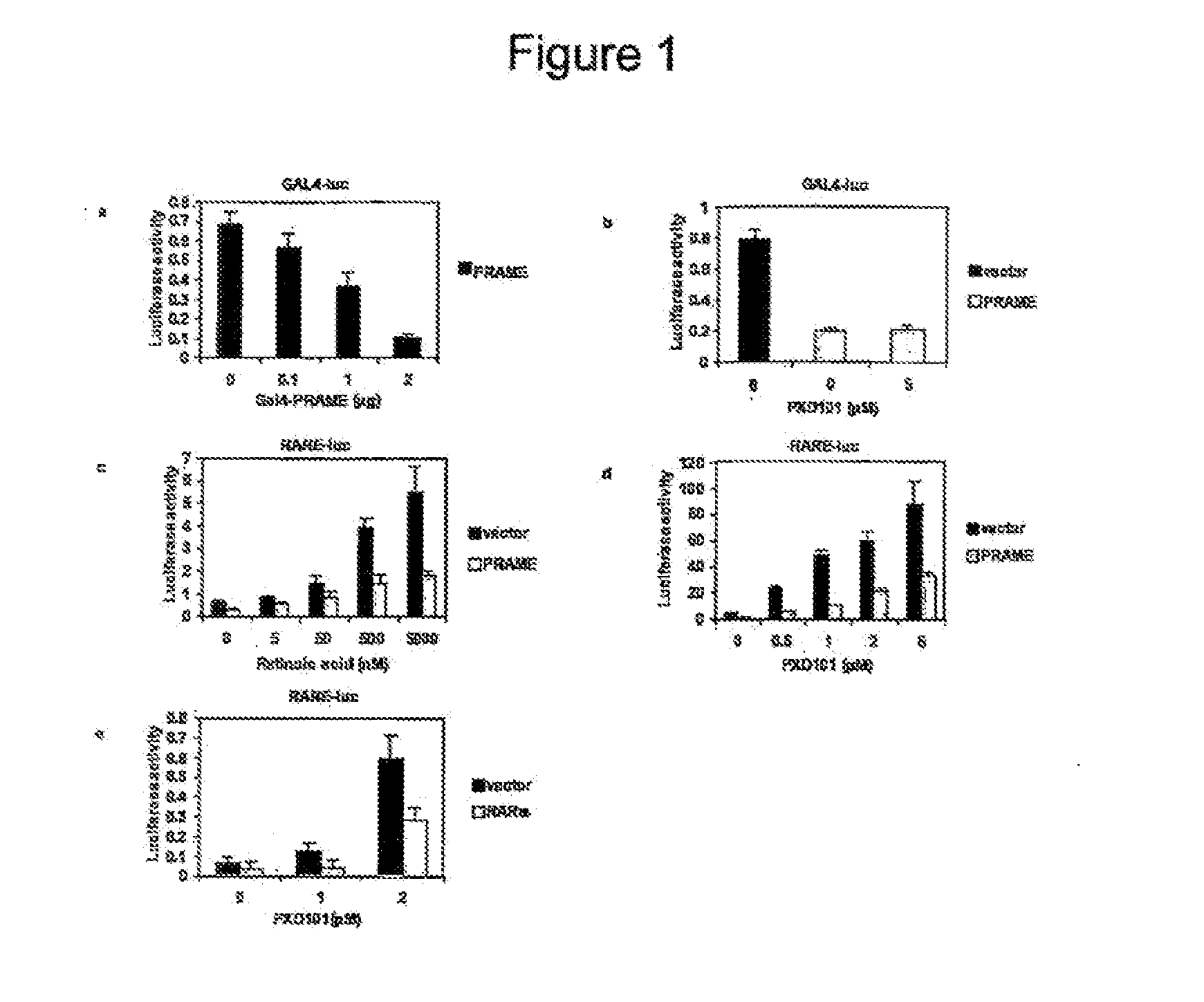Combined use of prame inhibitors and HDAC inhibitors
a technology of hdac inhibitors and prame inhibitors, which is applied in the field of combined use of prame inhibitors and hdac inhibitors, can solve the problems of unclear molecular basis of prame's selective growth inhibition activity on cancer cells and no function of prame to da
- Summary
- Abstract
- Description
- Claims
- Application Information
AI Technical Summary
Benefits of technology
Problems solved by technology
Method used
Image
Examples
Embodiment Construction
Inhibitor of PRAME
[0027]An inhibitor of PRAME includes any compound capable of either preventing expression of PRAME or of preventing PRAME when expressed from exerting its normal activity. Normal activity, as used in this respect, refers to any activity performed by the PRAME expression product in the human or animal body. Typically such activities include the repression of transcription and / or interaction with RAR.
[0028]A preferred inhibitor of PRAME is an interfering RNA (RNAi). RNA interference is the process of sequence-specific, post-transcriptional gene silencing in animals and plants, initiated by double-stranded RNA (dsRNA) that is homologous in sequence to the silenced gene. RNA interference (RNAi) is a process whereby the introduction of double stranded RNA (dsRNA) into a cell inhibits gene expression post-translationally, in a sequence dependent fashion. This process is also known as post-transcriptional gene silencing. Current models of RNAi indicate that it is mediated...
PUM
 Login to View More
Login to View More Abstract
Description
Claims
Application Information
 Login to View More
Login to View More - R&D
- Intellectual Property
- Life Sciences
- Materials
- Tech Scout
- Unparalleled Data Quality
- Higher Quality Content
- 60% Fewer Hallucinations
Browse by: Latest US Patents, China's latest patents, Technical Efficacy Thesaurus, Application Domain, Technology Topic, Popular Technical Reports.
© 2025 PatSnap. All rights reserved.Legal|Privacy policy|Modern Slavery Act Transparency Statement|Sitemap|About US| Contact US: help@patsnap.com



